News
Does low/no alcohol labelling lack clear information?
31 Mar 2023
It’s a booming beverage sector but without definitive rules on labelling, low- and no- alcohol drinks need to avoid misleading consumers to maintain confidence, say experts.
In 2022, the low/no alcohol space’s value exceeded $11 billion (€10.3 billion), drink market analysis firm, IWSR reported. With the sector expected to grow one third by 2026, the category’s popularity and development continue to rise.
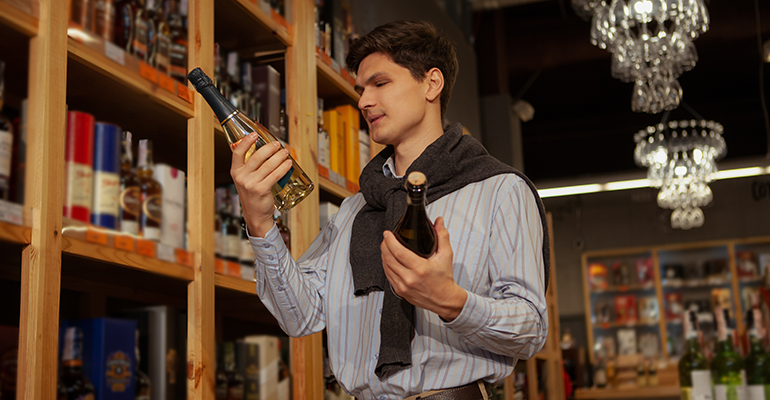
Currently, low/no-alcohol products are categorised based on their alcohol by volume (abv) rate. There are four core categories of beverages in the low/no-alcohol consumption market: low alcohol, non-alcoholic, alcohol-free, and de-alcoholised.
With low alcohol products, the drink must be 1.2% abv or below, and an indication of its maximum abv should be included on the label.
“’Non-alcoholic’ should not be used in conjunction with a name commonly associated with an alcoholic drink,” says Dr Lilla Bessenyei, research and operations executive at Brand Relations. There is an exception for non-alcoholic wine, which is derived from unfermented grape juice and is intended exclusively for communion or sacramental use. The labelling or advertising of these non-alcoholic wines should make it clear that it is exclusively for such use.
Alcohol-free should only be applied to a drink from which the alcohol has been extracted if it contains no more than 0.05% abv. The products should also include the abv (or state that they contain no alcohol) on the label to use the correct descriptor, Dr Bessenyei adds.
In guidance, the UK’s Advertising Standards Agency (ASA) states that drink manufacturers and marketers need to be careful not to mislead consumers by implying a product contains no alcohol if it does.
De-alcoholised is a term that should only be applied to a drink from which the alcohol has been extracted if it contains no more than 0.5% abv. The product must also indicate its alcoholic strength (or state that it contains no alcohol).
Consumers may not be aware of these distinctions. Yet, what is clear is that purchasing is up. During the pandemic, low/non-alcohol shoppers fell by 6.3%, but spend-per-consumer increased, Brand Relations found. Those consumers who remained in the category bought more low/no-alcohol items, as purchasing products grew by 14.9% and consumers bought 7.2% more per shop.
Amid this rise in low/no-alcohol popularity and increased spend, manufacturers can build trust and confidence with consumers by providing clear ingredients and nutritional information to ensure their contents meet consumer expectations. Education is crucial for producers, retailers, and consumers to maximise the belief and ongoing uptake in low/no alcohol drinks.
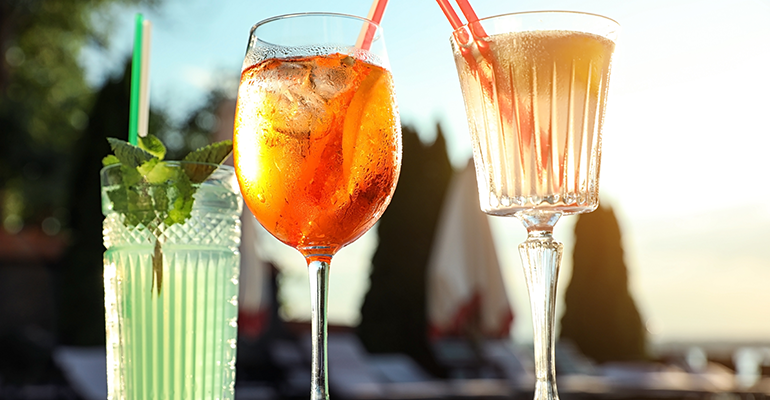 © AdobeStock/New Africa
© AdobeStock/New Africa
However, legislation has not yet caught up with consumers’ consumption patterns and information regarding what is alcohol-free remains guidance. In the UK, rules on descriptors set out in the Food Labelling Regulations 1996 were revoked in December 2018. Subsequently, the UK Government has published guidance, which has since remained, resulting in a lack of legally binding labelling stipulations.
Health is the leading influence
Among consumers, motivations to limit or reduce alcohol intake are strongly linked to health and wellbeing. The core influences of choosing low/no alcohol options over their alcoholic counterparts are to improve health (47%), manage weight (38%), save money (34%), and reduce the risk of disease (25%), beverage marketing company, Brand Relations, said in a market research report.
Producers must give the complete list of ingredients and nutritional information for soft drinks, including calories and sugar levels – but not for alcoholic drinks.
“But alcohol doesn’t need to state anything that they add to the products, even preservatives or the ingredients they use,” says Richard Horwell, managing director of Brand Relations. “Some of the gins are so full of sugar it is ridiculous, and no one knows.”
Yet, once these manufacturers make non-alcoholic spirits, they must declare the ingredients. From products mimicking gins, vodkas, and rums to whisky and tequila–the low/no alcohol counterparts are recommended to feature clear communication and comply with industry advice.
Since the pandemic, the healthiness of alcoholic drinks, measured by their calories and sugar, for example, has become more of a concern to 36% of drinkers and buyers of white spirits and ready-to-drink (RTDs) products, Brand Relations said in its report.
A growing trend in the low/no alcohol space is the idea of the ‘less but better’ mindset. Consumers subsequently look for premiumisation and products seeking to address health and weight management concerns.
With health and wellbeing making their way into three of the top four reasons driving consumers towards low/no alcohol, front-of-pack labelling, and product contents provide vital information influencing purchasing decisions.
Related news

Oat Barista: Innovation for game-changing beverages
20 Nov 2025
Oat Barista is a clean label, sustainable, and innovative drink base specifically designed to create the perfect foam in one single ingredient.
Read more
How younger consumers are redefining ingredient choices and rejecting brand loyalty
18 Nov 2025
Gen Z and millennial consumers’ preferences for transparency, functionality, and purpose are “redefining the very nature of consumption itself”, says SPINS.
Read more
Hybrid formats and flexible positioning to disrupt category norms in 2026
17 Nov 2025
Trend forecasters expect food and drink to move more fluidly across occasions, functions, and formats as consumers seek versatility, novelty, and convenience.
Read more
Danone highlights digestive health as potential ‘tipping point’ for food industry
13 Nov 2025
Danone is betting on a food industry “tipping point” that will bloat the market for healthy products, particularly those related to gut health.
Read more
New UPF standard hoped to offer consumers ‘coherence and clarity’
10 Nov 2025
Ingredients companies are being urged to enter “a new era of partnership and innovation” following the launch of the industry’s first non-UPF verification scheme.
Read more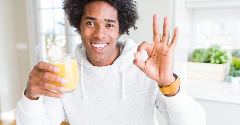
Faravelli at Fi Europe: Showcasing FARA® functional solutions for food and nutra
28 Oct 2025
At Fi Europe 2025 in Paris (stand 72M39), Faravelli showcases FARA® Customized Functional Solutions and a wide ingredient portfolio for food and nutra – delivering quality, innovation, and expertise.
Read more
Agrigum Redefined FIBER
27 Oct 2025
Agrigum has transformed gum acacia into a natural, science-backed fibre that supports gut health, sustainability, and innovation across global food and nutrition applications.
Read more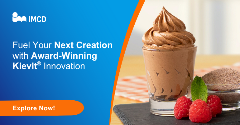
Expanding boundaries in food & beverage innovation
23 Oct 2025
IMCD and FrieslandCampina Professional expand partnership to deliver Kievit® across EMEA, enabling brands to enhance quality and accelerate time-to-market for tomorrow’s food & beverage creations.
Read more
Amazon Grocery launch aims to balance quality with affordability
22 Oct 2025
Global e-commerce giant Amazon has introduced a new private-label food brand, combining existing Amazon Fresh and Happy Belly products with new everyday items.
Read more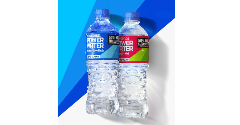
Powerade enters hydration space with launch of Power Water
21 Oct 2025
Coca-Cola’s Powerade brand has launched a zero-sugar, electrolyte-enhanced functional water, marking the brand's entry into the hydration space.
Read more